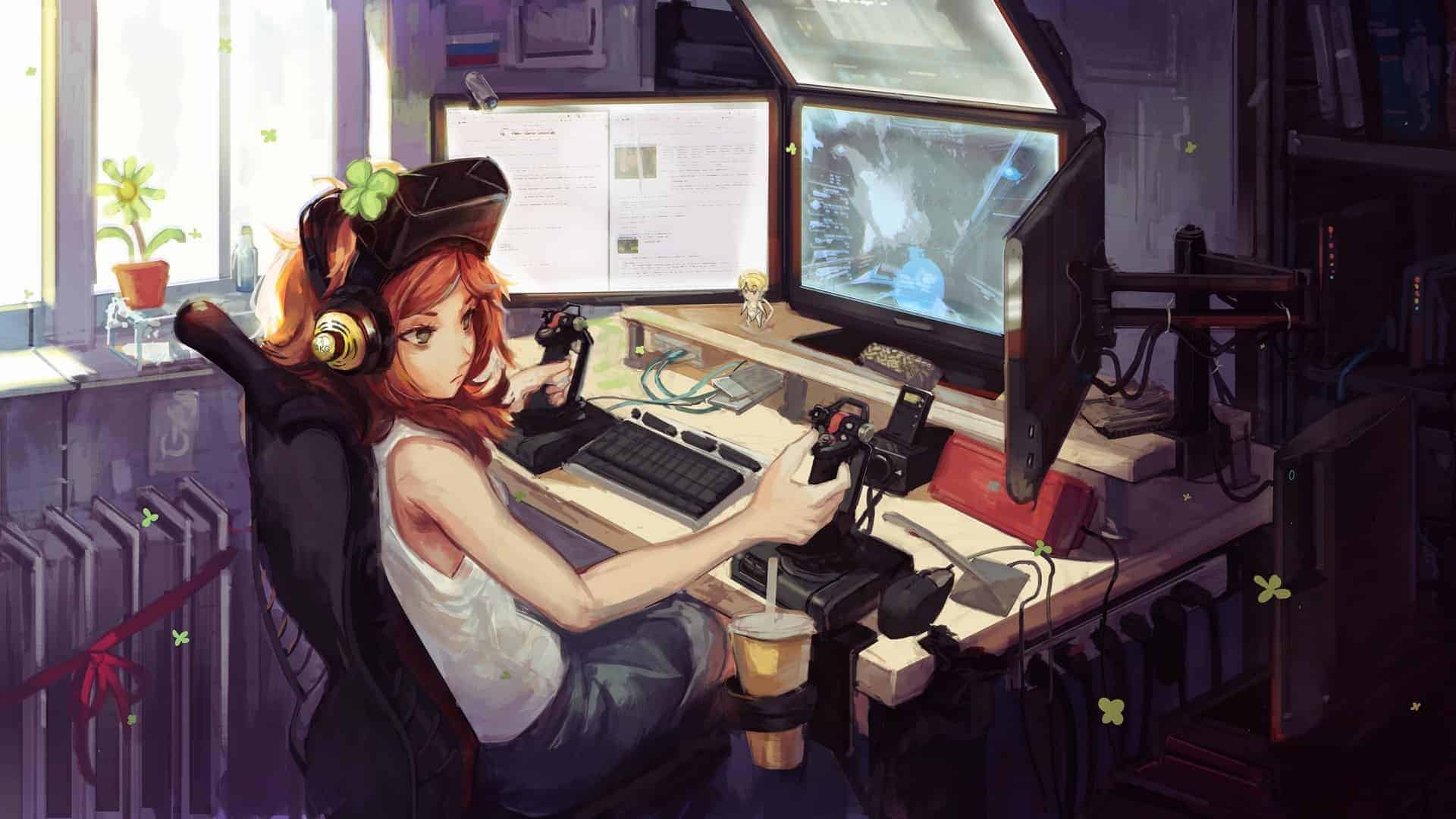Is the Gamer Girl Stigma Still Relevant?
If you were a girl who played video games, would you feel any stigma or judgement in the gaming community right now?
Fortunately, I’m a gamer girl, so I can answer this question from my personal perspective. As the 21st century (tentatively) moves toward a more accepting culture, it may be true that the past stigma against female gamers is also fading. From my experience, I’ve always kept my gender hidden where it might be public, choosing non-gendered avatars and gamer tags, and I haven’t experienced any in-game harassment or judgement when playing online in games like Skyrim or GTA, perhaps because of my discretion.
On the other hand, when my passion for gaming has come up in friendly conversation with male friends, they’ve assumed that I’m not a very skilled player or that I would only be interested in certain stereotyped games like Animal Crossing on the Nintendo Switch (I do love AC, though, you got me there).
I’m interested in discovering whether the majority shares my experience or if I’ve been lucky not to be subjected to the gamer girl stigma. Sadly, there’s no doubt that women in gaming have been subject to a fair amount of prejudice, though.
History of Gamer Girl Stigma
There’s no denying that the gaming industry has been a mostly male industry, and having an interest in video games has, until recently, been considered a mostly male pursuit with female players in the minority. Research by Statista found that between 2014 and 2020, the number of females playing video games in the US increased by just 3% in 14 years. So, what happened between those dates? Perhaps these statistics show that women are getting better at coping with stigma, not that the stigma is no longer there. If I were to give an example of the gamer girl stigma in action today, I would have to cite the female game streamers I follow on Twitch who, despite being great at what they do, get a whole lot of creepy men making comments focusing on their bodies and not their insane Apex skills. Sure, you can ignore and ban people like that, but it’s certainly unpleasant to experience even as a viewer. So, based on these general female encounters, I think I can safely say that the stigma hasn’t totally disappeared.

In fact, the most memorable event of women being actively excluded and harassed because of their interest in gaming would have to be the Gamergate controversy from 2014. Spanning Reddit, 4chan, and Twitter, the harassment campaign targeted female game developers, in particular with some drama around Zoe Quinn, who was bombarded with rape and death threats as well as doxing. Gamergate has since been described as a cultural movement against the idea of diversification in the gaming industry, and with a particularly anti-feminist mindset as its fuel. As there haven’t been any significant cultural wars to match Gamergate since, and the entire debacle is mostly frowned upon, it also seems that the community might have moved on to be a bit more accepting of female gamers – if they fit some criteria.
Female Gamer Stereotypes
There appears to be a few specific stereotypes of gamer girls that are either accepted or rejected by the larger gaming communities:
- E-girl, a female who purposefully emphasises their gamer girl status to supposedly get male attention, more subscribers, or money. E-girls seem to either be worshipped by their followers or otherwise branded ‘fake gamers’.
- Professional Female Gamer, a woman who has made a name for herself in the industry in things like e-sports or competitive gaming. She has usually had to prove herself with a high level of skill to separate from the e-girl idea.
- Fake Gamers, not necessarily a title just for women, but from personal experience this is the most commonly held idea of women who game – that a girl might only play girly games or is otherwise pretty clueless when it comes to knowledge of any AAA titles or challenging game mechanics.
With these stereotypes in mind, it’s easy to see how the gamer girl stigma has carried through to the modern-day, and how women are still finding their place in the gaming world.
What Does the Research Actually Say?
It’s difficult to conclude with a definitive answer as to whether the gamer girl stigma is still relevant today in 2020. My personal experiences have shown me that people will always make a strangely sexualised comment when I play online. Some people assume a lot about my gaming habits because of my gender. Alternatively, statistical evidence shows us that women have become almost half of the world’s gaming population. And with organisations like Women In Esports launching women-only tournaments and Women In Gaming (WIGJ) working to make the games industry, culture and community more accepting and diverse, there’s all the more reason for women to enjoy video games on the same level as men, even if that means occasionally blocking the odd creep and weirdo!

